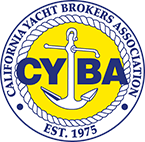

Tax Breaks for Boaters
This is informational and not intended as legal tax advice and should be discussed with a qualified tax advisor.
This is provided by the author and not the CYBA
It is probably the secret dream of all boat owners – finding a way to deduct the cost of their boats every April when the IRS comes calling for the annual donation. Surprisingly enough, there are several ways that you can write off some of the cost of your boat and reduce your tax burden. Even better, they’re legal and won’t require you to change your mailing address to Leavenworth, Kansas.
According to Tanner Kidd, a tax specialist and boating enthusiast from Seattle, “Most boat owners miss out on some valuable deductions because they don’t know about these particular loopholes. But anyone who doesn’t take full advantage of the tax laws is simply giving money away. It is illegal, of course, to avoid taxes. It’s perfectly legitimate, however, to minimize your taxes”.
Your Home Afloat
Probably the most commonly misunderstood tax deduction is the write-off of interest paid for a second home which, in this case, is any boat that can be lived aboard. Your tax advisors wouldn’t think twice about deducting the mortgage interest if you owned a mountain cabin or a beach cottage, but they often don’t realize that a boat also qualifies.
Now, before you get your hopes too high, the boat must “reasonably” be livable – your 15-foot jet boat doesn’t qualify. The IRS has generally determined, however, that any boat that has at least one berth, a permanent galley, and a head (even if it’s just a Porta-Potti) qualifies for the second home deduction.
There are some caveats here that you need to remember. Obviously, you can’t already have a second home you are deducting. If you do, you can choose between the second home and the boat each year for your deduction.
You need to ask the lender with your boat loan for IRS form 1098 to report the interest or, in most cases, you can simply get a letter from the lender. If you used an equity line of credit with your home or the boat as security, you’re entitled to deduct those interest charges.
Don’t forget that you can deduct not just the interest, but also any points paid to get the loan as well as the penalty for an early payoff of the loan.
Doing Business at Sea
Many boat owners use their boats to entertain clients and potential customers, and this qualifies as a deduction under the entertainment expense category for your business. But be careful here, because the IRS looks very hard at entertainment expenses, so be prepared to document every item thoroughly.
The rules are straightforward for this deduction. You must have a “reasonable expectation” of deriving income or other benefit in the future as a result of your use of the boat. You must actually engage in business discussions while onboard, with the main purpose of the boat to transact business.
Because this is a highly abused deduction, the IRS requires you to keep full documentation for each expense, the dates of use, the location, the reason for the use and the nature of the expected benefit, and the occupations of the persons entertained.
You’ll be limited to deducting 50 percent of these costs, as with any other travel or entertainment expenses, and you can’t include regular maintenance or depreciation for your boat. What you can include are the costs specifically related to each particular use of the boat: fuel, food and drinks are obvious, but you can also include specific expenses such as a transient mooring fee or the entry fee to a fishing tournament.
Sweet Charity
When it comes time to look for a newer or bigger boat, you can sell or trade in your present boat but, in some cases, donating your boat to charity can provide a sizable tax advantage. “You can only deduct the fair market value of the boat,” says Kidd, who has handled several boat donations for clients. “You’ll need to have an independent appraisal or survey, and you should make sure that it clearly states the market value and not the replacement value, which can be considerably higher and which can trigger an alarm with the IRS.”
In most cases, you can pick your favorite charity as long as it is qualified as a non-profit organization. Some groups, such as the Sea Scouts, are equipped to take care of all the paperwork and details involved in a donation.
Even better, you may end up getting more for your boat as a donation than you would if you sold or traded it. A boat with a market value of $10,000 might only be worth $5,000 as a trade-in at a dealership, and it might take weeks or months to sell if you sell it yourself. With a donation, the boat is gone immediately and you can gain at the bottom line of your tax debt.
Be Your Own Captain
It’s appealing to think of using your boat as a weekend business. You can take people on harbor tours or for a day of fishing while you enjoy all the benefits of boat ownership and deduct all the costs as a business expense.
The reality, however, can be somewhat different. According to Tom Cutter, who operates a full-time charter boat operation, it can be a lot of hard work.
“To use your boat as a six-pack charter with yourself as the skipper, you need to make sure that the IRS doesn’t view yours as a hobby rather than a business. You need to make a genuine effort to make a profit, rather than just enough to cover your costs and get a free day out on the water.”
As a starting point, you’ll need to get your U.S. Coast Guard license allowing you to skipper up to six guests aboard your boat.
Once in business, you’ll be able to write off the depreciation, maintenance, equipment, fuel and mooring costs. Kidd recommends using the purchase price of your boat as a base for a seven-year (or longer) straight line depreciation schedule. You’ll also need to keep detailed records of every expense as well as the amount of income. To keep clear of IRS “hobby-loss” rules, he suggests that you aim to make a profit in at least three out of every five years.
Since you probably won’t want to devote full use of your boat to chartering, you’ll only be able to deduct the expenses for the percentage of time actually used in business. For example, if you charter 20 percent of the time that you operate your boat, you’ll be able to deduct 20 percent of the expenses. The exception to that is equipment used purely for chartering, which is then fully deductible.
But, as the charter captain, you’ll get a double hit in taxes. You’ll pay the income tax on the actual profits of the boat, but you’ll also pay self-employment taxes as a sole proprietor.
Some boaters prefer to take a less serious effort toward earning money for their boat, preferring only to charter it occasionally. In that situation, you can still deduct the related expenses, but not as a loss. You’ll only be able to reach the break-even point of costs versus income, and you’ll have to cover any losses out of your own pocket because the IRS will label you as a hobby business.
Because the IRS is well aware that owners want to enjoy their boats at a reduced cost, boating deductions often warrant an increased examination of your tax return, which may not be worth the effort to save a few dollars.
Because every tax situation is unique, Kidd advises that every boater explore his options with a tax advisor familiar with boating deductions before making decisions.
See also a guide to buying a boat.
by Chris Caswell
